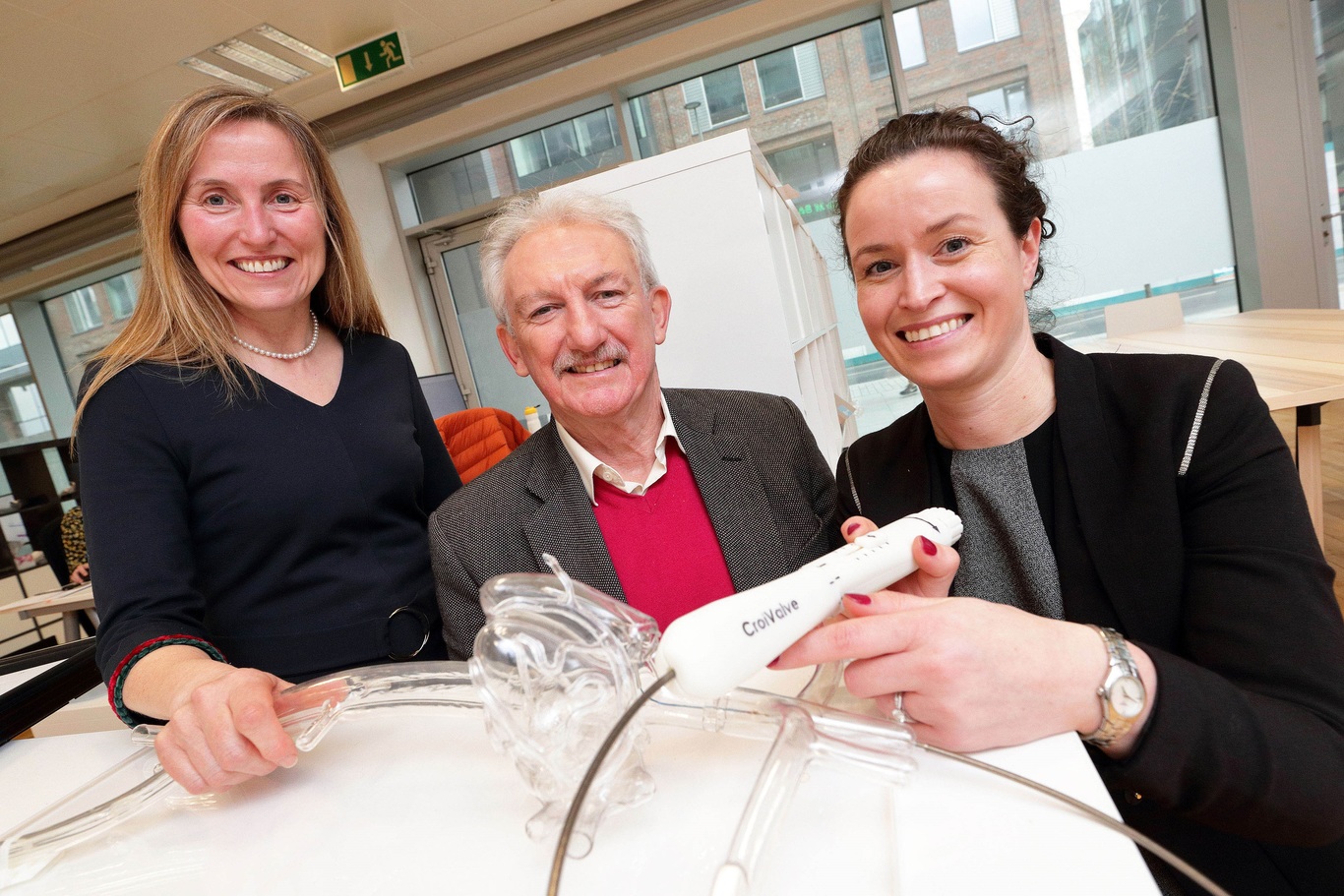Medtech startup CroíValve has raised €4m to kickstart its first human trials
The company has developed a device that can treat heart conditions without major surgery.
A FEW MONTHS after its last funding round, Dublin medtech startup CroíValve has raised an additional influx of €4 million from investors.
CroíValve, founded in 2017, is developing a device for treating a heart condition called tricuspid regurgitation, where valves in the heart do not close correctly.
The new funds will be invested in carrying out its first early trials using humans.
The €4 million funds come in the form of €2.5 million from the EU’s Horizon 2020 programme and €1.5 million from Broadview Ventures, a Boston firm that specialises in investing in cardiovascular treatments, and existing backers Halo Business Angel Network, Atlantic Bridge University Fund and SOS Ventures.
The latest tranche of funding arrives just a few months after the Trinity College spinout startup raised €3.2 million.
Heart condition
Tricuspid regurgitation is a condition where the tricuspid valve in the heart does not seal correctly, resulting in blood flowing from the right ventricle into the right atrium.
This can cause a number of outcomes including fluid retention, liver and kidney failure and can be fatal.
It has traditionally been treated through open heart surgery but many of those that suffer from it are elderly and are at risk in such a serious surgery.
CroíValve has developed a device called a Tricuspid Coaptation Valve that is inserted into the heart, with minimal invasiness, and seals the gap in the valves.
The device has already passed pre-clinical testing and the company will now be seeking to carry out first-in-human trials. These are the initial tests on human patients.
Chief executive Lucy O’Keeffe told Fora that CroíValve will commence the trials in early 2020.
It is facing a lengthy period of trials and studies before the device will hit the market.
“We have a long clinical journey, it’s a heart valve implant. We are looking to start feasibility work in Europe with first-in-human trials and progress to feasibility work in the US and then on to more significant trials,” she said.
“Pivotal trials will require regulatory approval for selling the device. We have a number of years of clinical evaluation.”
Get our Daily Briefing with the morning’s most important headlines for innovative Irish businesses.






